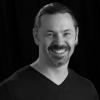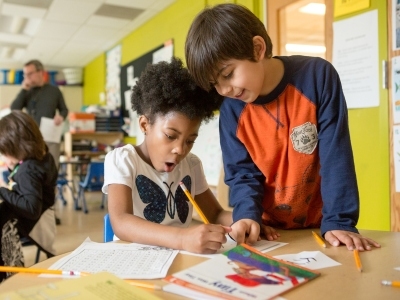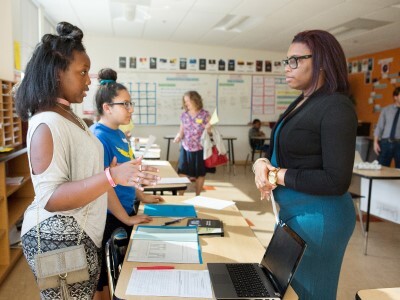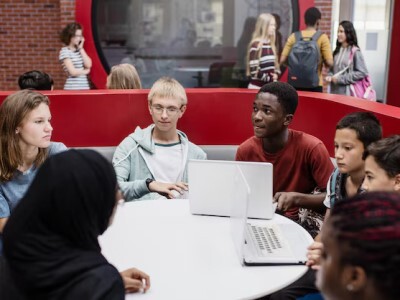Teaching (and Learning) Humanity at Philadelphia’s Workshop School
Topics

We’ve all had the experience of truly purposeful, authentic learning and know how valuable it is. Educators are taking the best of what we know about learning, student support, effective instruction, and interpersonal skill-building to completely reimagine schools so that students experience that kind of purposeful learning all day, every day.
The Workshop School seeks to recognize students’ humanity & cultivate their unique gifts to both give and receive through a “community first” principle.
Not humanities, like the subject. Humanity.
If you’re lucky, every so often you meet someone whose way of seeing things is so clear, so compelling, so manifestly right—that it changes how you think about yourself, your work, and the world around you.
For me, that most recent someone was Daniel Wordsworth. Daniel runs a humanitarian organization called Alight (formerly the American Refugee Committee). At a conference last October, I heard him speak about what it means to be human. It boiled down to two things. First, to be human is to be “truly wondrous.” We are at once mysterious and capable of amazing things. Second, to be human is to be the bearer of a gift. Our charge is to understand those gifts, to share them, and to receive them from others with grace and gratitude.
There are things we know are true before we can even put them into words. In a brief talk I gave later that evening, I shared that, thanks to Daniel, I now had a new way to talk about why the Workshop School in Philadelphia exists: we seek to recognize and cultivate the humanity in our students and each other.
What does it mean to cultivate humanity? At our district high school, we see our students (and staff) as wondrous. We seek to understand their story, their joy, their curiosity, their pain. We also appreciate and respect that we don’t fully know them, and that seeking to understand is an ongoing process. We know that they are evolving. We know that each of us brings gifts to the school community. We may not be fully aware of what they are, and we may not be fully ready to give them. But those gifts are there. Together, we work to build the space where those gifts may be freely given and warmly received.
Learning and teaching humanity to kids is hard work, personally and professionally. In a post titled, What if Maslow was wrong?, Wordsworth reflects on just how challenging it can be to ground our work in seeing and seeking the humanity in others. As it is generally understood, Abraham Maslow’s hierarchy of needs suggests that satisfying basic needs like food, shelter, and safety are prerequisites for higher-order needs like love, respect, and self-actualization. Human service fields, including education, tend to accept this hierarchy as given. While acknowledging that physical needs obviously matter, Wordsworth questions whether the idea of a hierarchy leads us to separate and sequence the needs we perceive. “Refugees come to us not as a sequence of needs,” he writes, “but as a whole person.” He describes decades of work with people who, despite facing material deprivation and physical threat, were most concerned with meaning, connection, and their hopes for their future and that of their children. When we think of needs in sequence with the material and the physical coming first, sometimes we never get to what matters most.
The limitations created by treating needs according to a hierarchy resonates powerfully with me as an educator and a leader. On my bad days, I don’t see whole people in front of me so much as problems to be solved. Staying focused on humanity requires us to slow down, to focus on the quality of our interactions rather than the number of tasks crossed off our lists. It calls us to bear witness, even when that’s uncomfortable and painful. It challenges us to recognize and name our own needs—for a gift to be given one must be ready to receive it. It demands that we lead with questions rather than jump to conclusions. It leads us to seek common ground.
Our first principle at the Workshop School is “community first.” A community is not a collection of problems—or assets, for that matter. It is a collection of people who share some connection to one another. It is in our commitment to humanity that we find and deepen that connection. As educators it is our job not only to see our students as wondrous, but to help them see each other that way. And it’s our responsibility to look for the gift each student bears, and when needed, to help them discover it in themselves.
Photo at top by Christina Morillo.




